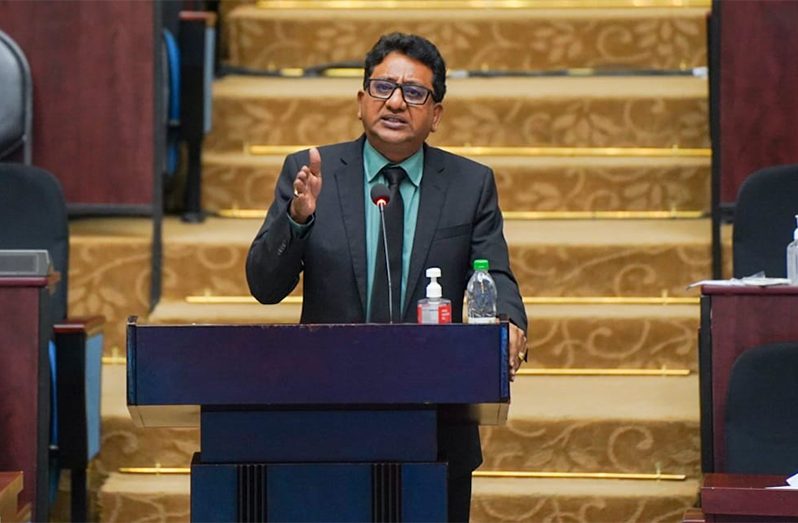The Criminal Law (Procedure) (Amendment) Bill 2022, which strips the committal powers of the Director of Public Prosecution (DPP) and vests it to a High Court Judge, was, on Monday, successfully passed in the National Assembly.
Minister of Legal Affairs and Attorney General, Anil Nandlall, S.C. presented the Criminal Law (Procedure) (Amendment) Bill No. 21 of 2022 in compliance with a ruling that necessitated changes to Section 72 of the Principal Act.
Section 72 of the Criminal Law (Procedure) Act outlines the procedure for the committal of an accused person to stand trial and confers the DPP with the authority to direct a Magistrate, after the discharge of an accused person at the end of a preliminary inquiry (PI), to reopen the said PI and commit the accused person once the DPP believes a prima facie case has been established.
In March 2022, the CCJ in the challenge of the local case of Marcus Bisram v the Director of Public Prosecutions, ruled that section 72 of the Act which empowers the DPP to direct a magistrate to commit an accused person to stand trial, was “unconstitutional and violates the separation of powers.”
The apex court had ordered that until Guyanese lawmakers make suitable provisions, Section 72 is modified to excise those provisions permitting the DPP to direct the magistrate.
In keeping with the ruling, the amendments will now see the DPP having to make an application to a Judge of the High Court for a warrant to arrest and commit an accused person who was discharged by a magistrate under section 69 or 71A (4) of the Principal Act, where the Director of Public Prosecutions is of the view that, on a review of the evidence placed before the magistrate, the discharged person ought to have been committed to trial.
The judge may only grant that application if he or she is also of the view, from the evidence placed before the magistrate who discharged the accused person, that such a course of action is required.
Both the Director of Public Prosecutions and the discharged person shall have the right to appeal to the Court of Appeal.
The amendments were backed not only by the government ministers but also members of A Partnership for National Unity (APNU).
“I believe that we have corrected a major deficiency in our law…I am happy that both sides of the house have recognised the importance of correcting this, though we may have a nuanced difference in our forensic examination of how the CCJ dealt with the matter.
“The bottom line is that we recognise that it is our final court and its rulings are binding upon us and we are acting in compliance as a parliament with those directions from our apex court,” Nandlall said.
Prior to the Bill being tabled and read, the Attorney General had consulted and sent invites to the DPP Shalimar Ali-Hack, SC; Senior Police Legal Advisor Sonia Joseph; President of the Guyana Bar Association, Pauline Chase; and President of the Berbice Bar Association, Horatio Edmonson.




.jpg)










